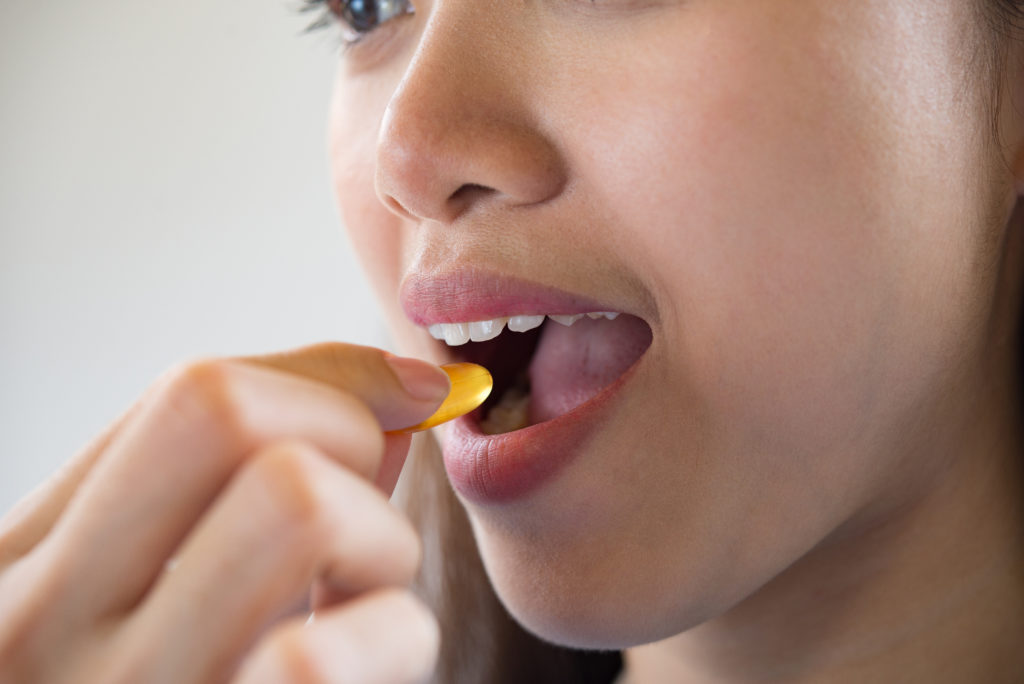
Most of us are aware of how our diet affects our physical health but we don’t really connect what we eat with how it affects our brain function. Like many of our organs, our brain requires certain vitamins to function efficiently. A deficiency could lead to both neurological and emotional problems. We often relate feeling down or sad to a bad situation or experience but the solution could be in our diet.
People have been preventing and curing mental disorders using natural sources for centuries and there is scientific evidence to back up these natural remedies. Often taking the right supplements can improve most deficiencies in a month or so and sometimes they can bring instant relief from fatigue, migraines and increase general mental clarity.
Keep reading to find out about which supplements are available from SHD Medical and can help to support your mental health and wellbeing.
Everyone knows that the most reliable source of Vitamin D boost is sunlight, however the sun isn’t always around especially in the darker colder months of winter. Vitamin D is vital for maintaining mental health and a lack thereof could lead to the ‘winter blues’. If you are unable to get out and absorb the sun naturally then it’s actually really important to include a supplement in your diet as it is a key nutrient for both the nervous and immune systems. Low levels of Vitamin D have been linked to depression and other mental illnesses.
There are a range of eight different B vitamins all of which are helpful for the absorption of energy from food, to build vital molecules, regulate your metabolism and your serotonin levels, but B9, also known as folate, and B12 are the key ones that specifically help with your mood. A deficiency in B9 can induce depression related symptoms. A deficiency in B12 is quite common amongst vegans and vegetarians because this vitamin is generally found in animal products such as meat and eggs. Symptoms can include depression, anaemia and fatigue, therefore supplementation here is crucial and will provide a great energy surge.
Selenium is great for the immune system because it contains one of the most important antioxidants, but it also fights inflammation and encourages and supports healthy cognitive function. Research has shown that low levels of Selenium can increase your risk of depression and pregnant ladies who have optimum levels in their body are generally at a lower risk of developing postnatal depression after birth. The body requires 200mg of Selenium a day which is the equivalent found in just two brazil nuts. Please consider though, that too much selenium is considered dangerous due to its toxicity in higher doses.
Magnesium is a nutrient, it plays a vital role in many different health aspects within our body. It can trigger over 300 different enzyme reactions in the body and it is crucial to nervous transmission, muscle contraction, blood coagulation, energy production, nutrient metabolism and bone and cell formation. Magnesium is well known as an antidote for stress. Low levels have been known to increase adrenaline and cortisol which often occur from stress reactions. The recommended daily amount is 400- 420 milligrams.
Probiotics are live cultures that can be ingested through our diets to support gut health and can affect everything including our brains. There is a very strong link between the gut and cognitive function. Probiotics indirectly enhance your brain. It’s common for stressful situations to cause digestive troubles for example a nervous upset tummy and similarly on the flip side, ailments such as IBS or Crohn’s disease can trigger anxiety or depression. Studies have shown that perfecting imbalances in the intestinal tract can reduce feelings of anxiety, depression and stress.
Whilst taking supplements can be beneficial for some people, they alone will not prevent or even cure mental illnesses. However, including some of these vital vitamins and nutrients could encourage healthier brain function and mentality, alongside a healthy diet and regular exercise.
Always seek advice from a General Practitioner or health professional who can provide you with guidance and information about which supplements are right for you.
Sources:
https://www.huffingtonpost.co.uk/tayana-simons/5-vitamins-that-help-main
https://www.bustle.com/p/can-vitamins-help-mental-health-these-7-supplements-may-have-mood-boosting-properties-8591288
wellandgood.com/good-advice/supplements-to-take-for-mental-health/